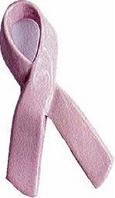Dr Jennifer Mamby-Alexander, Contributor

Dr Mamby-Alexander
At 35, Sandy, a single and very attractive woman, was diagnosed with breast cancer. The fears of the diagnosis were realised when she had to have a mastectomy.
The changes in appearance and life expectancy sparked concerns about the future of a relationship. For her, this was a disfiguring experience.
Before the cancer, her boyfriend at the time proposed, but she refused. Now she wondered who would want a woman with only one breast. She was devastated by the scar. She did not do reconstruction surgery but wore a prosthesis in her bra.
Sufficiently adjusted
A year after her mastectomy, she felt sufficiently adjusted and started dating somone. At first, she didn't tell him about her cancer. She felt inadequate, and less feminine. Finally, before the relationship became intimate, she told him about her cancer and mastectomy. He decided he couldn't cope and left her immediately. Her worse fears were realised. She felt that she would never be on a level playing field with other women. She was devastated and lost any confidence that she had regained after her ordeal. She regretted not being upfront with him when they first met.
After a few years, she reconnected with her ex-boyfriend whose proposal she refused before her cancer diagnosis. He treated her with respect and compassion and made her feel as if she had three breasts. Her mastectomy was not an issue for him. Her confidence and sex appeal were boosted. He became familiar with the prosthesis, but she feared he would find her scar offensive, so she always wore a bra or blouse during sex. She declined his proposal of marriage a second time, and feels that even today, 12 years after her mastectomy, she will never be 100 per cent comfortable with her body again.
Maria

Maria handled her mastectomy differently. When she was asked out for pizza, she replied matter-of-factly, "I can't go out Friday. I have cancer and I'm in chemotherapy that day." He paused, and then said, "How about Sunday?"
Sandy waited until a few dates and thought it would have been easier to tell her partner after she felt she knew him better, and that is the usual advice given. After a mastectomy, it is important to let your potential partners know about your diagnosis and also tell them in a few sentences when it happened and what was done. Letting them know how you feel about it may make a big difference in how comfortable or uncomfortable they may be. If he can accept this and he still wants to be with you, you have found a good man. Men who reject you because of your breast cancer and a mastectomy are not the kind of men you need in your life.
Dr Jennifer Mamby-Alexander is a 20 year breast cancer survivor and author of, 'A Practical Guide to Coping with Cancer'.

